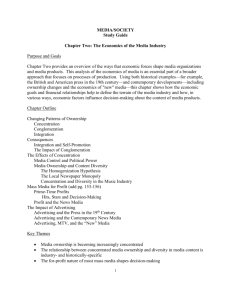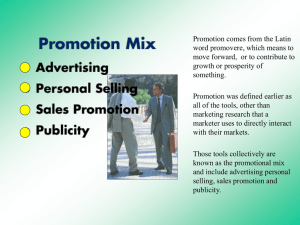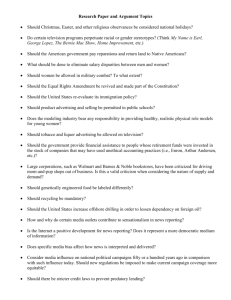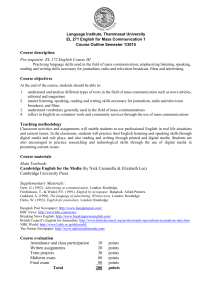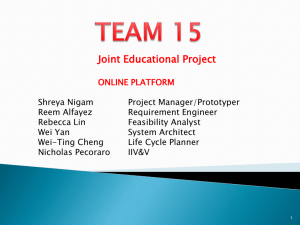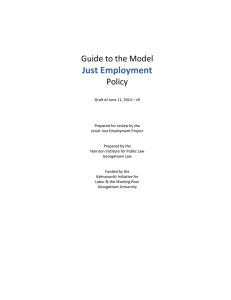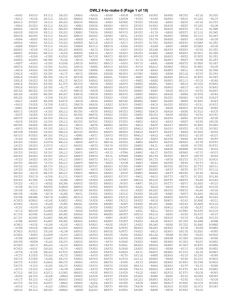BELGIUM
advertisement
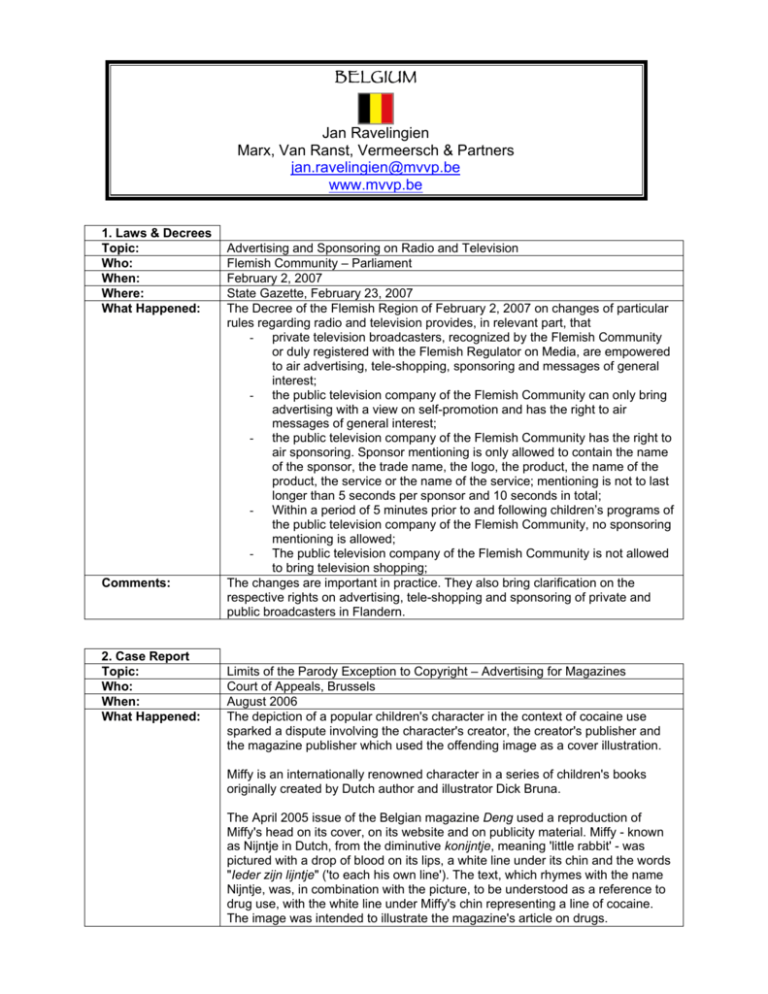
BELGIUM
Jan Ravelingien
Marx, Van Ranst, Vermeersch & Partners
jan.ravelingien@mvvp.be
www.mvvp.be
1. Laws & Decrees
Topic:
Who:
When:
Where:
What Happened:
Comments:
2. Case Report
Topic:
Who:
When:
What Happened:
Advertising and Sponsoring on Radio and Television
Flemish Community – Parliament
February 2, 2007
State Gazette, February 23, 2007
The Decree of the Flemish Region of February 2, 2007 on changes of particular
rules regarding radio and television provides, in relevant part, that
- private television broadcasters, recognized by the Flemish Community
or duly registered with the Flemish Regulator on Media, are empowered
to air advertising, tele-shopping, sponsoring and messages of general
interest;
- the public television company of the Flemish Community can only bring
advertising with a view on self-promotion and has the right to air
messages of general interest;
- the public television company of the Flemish Community has the right to
air sponsoring. Sponsor mentioning is only allowed to contain the name
of the sponsor, the trade name, the logo, the product, the name of the
product, the service or the name of the service; mentioning is not to last
longer than 5 seconds per sponsor and 10 seconds in total;
- Within a period of 5 minutes prior to and following children’s programs of
the public television company of the Flemish Community, no sponsoring
mentioning is allowed;
- The public television company of the Flemish Community is not allowed
to bring television shopping;
The changes are important in practice. They also bring clarification on the
respective rights on advertising, tele-shopping and sponsoring of private and
public broadcasters in Flandern.
Limits of the Parody Exception to Copyright – Advertising for Magazines
Court of Appeals, Brussels
August 2006
The depiction of a popular children's character in the context of cocaine use
sparked a dispute involving the character's creator, the creator's publisher and
the magazine publisher which used the offending image as a cover illustration.
Miffy is an internationally renowned character in a series of children's books
originally created by Dutch author and illustrator Dick Bruna.
The April 2005 issue of the Belgian magazine Deng used a reproduction of
Miffy's head on its cover, on its website and on publicity material. Miffy - known
as Nijntje in Dutch, from the diminutive konijntje, meaning 'little rabbit' - was
pictured with a drop of blood on its lips, a white line under its chin and the words
"Ieder zijn lijntje" ('to each his own line'). The text, which rhymes with the name
Nijntje, was, in combination with the picture, to be understood as a reference to
drug use, with the white line under Miffy's chin representing a line of cocaine.
The image was intended to illustrate the magazine's article on drugs.
Bruna and his publisher claimed that both their copyright and their moral rights
had been infringed, particularly in respect of the use of Miffy's image in the
context of illegal substances, which they claimed was detrimental to Bruna's
honour and reputation. A 'cease-and-desist' order was obtained against the
magazine publisher; this decision was then appealed by the publisher.
The Court of Appeal identified four theoretical and cumulative conditions which
must be fulfilled in order for the parody exception to be invoked. A parody must:
• be an original work in itself;
• serve a critical purpose;
• be humorous; and
• use only the basic and strictly necessary elements of the original in order
to avoid confusion.
Comments:
3. Case Report
Topic:
Who:
When:
Where:
What Happened:
The court found that the magazine's cover illustration did not show sufficient
originality. It was a direct copy; Deng had reproduced more elements of the
original than had been necessary. The image used identical proportions, the
same characteristic thickness of lines and an identical palette of bright and
contrasting colours.
The case prompted the Court of Appeal to consider to what extent a parody of a
copyrighted work may infringe copyright and moral rights in the original. In the
case of such a copy, the public could not be certain whether the illustration was
the work of a parodist or the original artist. The illustration was not used to mock
the original work in a humorous manner; the parodist had merely attempted to
profit from the reputation of the original work in order to stimulate sales of the
magazine.
Violence and Torture in Radio Ad
Citybank, advertising for yearly basic interest rate
February 16, 2007
Self Regulation (JEP)
The radio ad runs as a scene where a man is forced to confessions. A consumer
complained with the Self Regulator.
The advertiser observed that the ad should bring transparency through an easy
offer instead of complex interest rates. Citybank brings the interest rate to life in
the ad under the form of a person who is forced into confessions to say that he is
not really 4%, but 2 + 1,5%. The advertiser emphasizes that this situation is
utterly absurd and humoristic.
Comments:
The JEP considers that the metaphor (personification of an interest rate) is not
clear with as consequence that the scene is not humoristic, but rather has a
degree of realism which can be perceived literally by an average consumer, to
wit as violence on a competitor to force him into confessions. The JEP also is of
the opinion that a tolerance towards violence transpires from the ad. The ad
lacks social responsibility. On the basis of the Code of the International Chamber
of Commerce, the Decree of the French Community, the Code on Ethics in
Advertising as well as recommendations for the JEP on the depiction of human
beings, the JEP recommends stopping airing the ad.
The case illustrates the almost zero tolerance towards the depiction of violence
in advertising
4. Case Report
Topic:
Who:
When:
Where:
What Happened:
Comments:
Disparaging Statements on Countries of Competing Automobile Producers in a
Print Ad
Korean Motor Company Hyundai
January 16, 2007
Self Regulation Authority (JEP)
The ad shows, under the heading “Free your brains. Delete, some examples”
four different images with short texts: image of typical French toilets with text
“vacation souvenirs”, image of the pop group Abba with text “Eurovision Song
Contest 1976”, image of five persons in traditional German outfit with a big glass
of beer and an image of Snow White with seven dwarfs. “And put the special
conditions of Hyundai in their place”. The complaint shows images of France,
Germany and Sweden as competing producing countries and damages the good
reputation of those countries, more particularly the school course language
German. The JEP declines the reproaches and considers that the message is
clearly figurative, the ad cannot be understood wrongly by the public at large as
a denigration of other countries or the German language. No infringement of self
regulation or legal provisions can be found.
This case shows how little is needed for an ad to give rise in Belgium to
complaints by consumers with the Self Regulation Authority.

